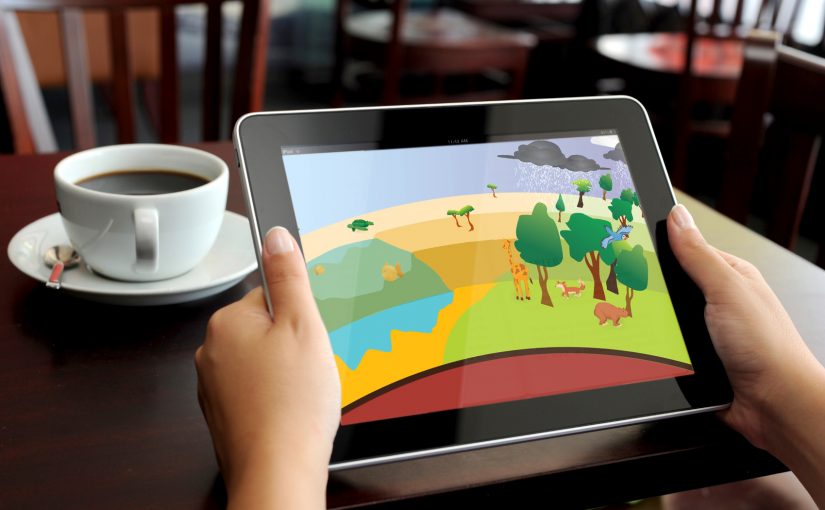The result of a Master course, a collaboration with Nick Hermans, Karin Niemantsverdriet, and Bart Wolfs
We all know the reasons why we should save energy: it’s better for the environment, it’s better for our energy bills… but in our daily lives it appears to be very difficult to stay conscious of our energy usage. Prospera shows you the direct effects of your energy usage at home through a casual game.
Prospera
Prospera is a casual game that lets you create your perfect world: Make mountains, dig for water and plant vegetation to sculpt the landscape the way you like. Be surprised by the animals will roam your world. Your world and the animals that call your planet your home are directly connected to your personal energy use. Turn on you heater and the temperature will rise, take a long shower and the water oceans will rise. Can you discover all the animals? Will you make the most beautiful planet in the galaxy? Compare your planet to your friends, family and comparable households all over the world to find out what your energy profile looks like. Will you stand out from the rest of the galaxy? It’s up to you!
Designing for the User Experience
Prospera is the result of a four-week Master course Designing for the User Experience. The goal was to make big data insightful and humane, allowing people to gain new insights from the massive amount of data that is being collected. Our goal was to make energy data insightful and engaging to increase energy awareness.
The user was central in this project. Techniques like narrative interviewing, data sampling, co-constructing stories, and user testing experienceable prototype were applied to iteratively learn about people’s experience of energy data and the game Prospera.
The game was tested in two ways. First, A simple version of the game showed that the game was fun and engaging. It allowed for self-expression and freedom to create. Through playing the game together, finding new animals together and comparing planets, people were motivated to keep on playing. Second, sensors were installed in peoples meter box, which were linked to a real time planet visualization. This test showed that the direct energy-feedback encouraged people to reflect on their energy use, which in some cases lead to a behavior change.
Results
Prospera was the runner-up of the Microsoft Expo Design Competition and exhibited at the Dutch Design Week in 2013. From these events resulted a collaboration with Slim Opgewekt, a company that realises a future-worthy by bringing sustainability to schools across the Netherlands. After my Master education I took up further development of Prospera as a UX designer at Slim Opgewekt, read more about this here.
Runner up, Microsoft Expo Design Competition on “Big Data”, 2013
D&AD Wood Pencil, D&AD New Blood Awards, 2015
Presented at the Dutch Design Week ID’13 exposition, 2013
Published in Eindhoven Designs volume 7, 2013
